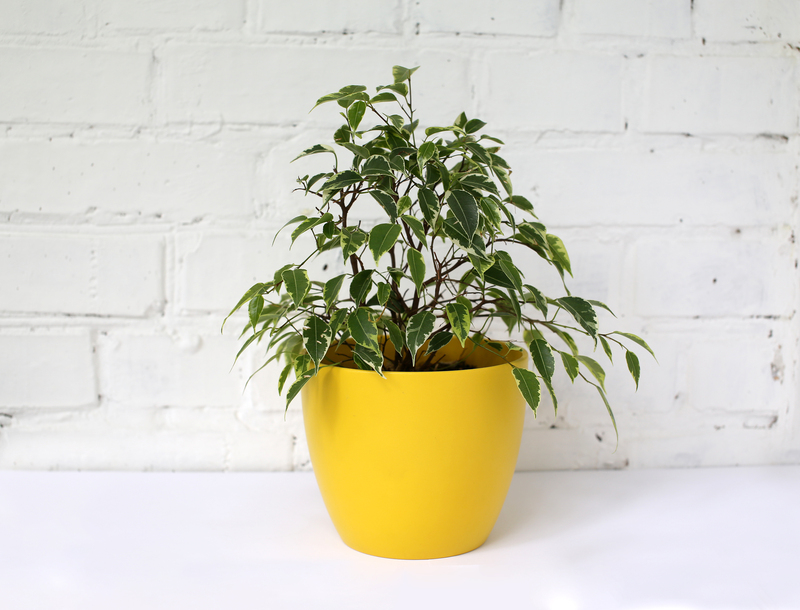Sustainable Fertility Through Composting
Posted on 11/06/2025
Sustainable Fertility Through Composting: Nourishing Your Soil the Eco-Friendly Way
Unlocking the secrets of sustainable soil fertility is at the heart of eco-friendly agriculture and home gardening. Composting stands out as a natural, cost-effective, and environmentally friendly solution for creating nutrient-rich soils that promote healthy plant growth and reduce our reliance on chemical fertilizers.
Understanding the Concept of Sustainable Fertility
Fertility is the foundation of productive soil, ensuring that plants receive the nutrients they need to thrive. Sustainable soil fertility means maintaining or improving soil health over the long term without degrading natural resources. In this context, composting emerges as a vital practice for reusing organic waste and nurturing the ecosystem beneath our feet.
What is Composting?
Composting is the process of converting organic matter--such as kitchen scraps, yard waste, and agricultural by-products--into a dark, crumbly substance known as humus. This process relies on the natural breakdown of materials by bacteria, fungi, and other microorganisms.
- Reduces food waste and diverts organic matter from landfills
- Improves soil structure, water retention, and aeration
- Creates a nutrient-dense amendment for gardens and farms
- Enriches soil without synthetic chemicals
The Role of Composting in Sustainable Soil Fertility
Composting for sustainable fertility utilizes nature's recycling system to replenish nutrients in the ground. When compost is incorporated into soil, it:
- Provides a slow-release source of nutrients for plant growth
- Encourages beneficial microbial activity, essential for plant health
- Helps balance pH and suppresses soil-borne diseases
- Reduces dependence on chemical fertilizers, lowering costs and environmental footprints

Types of Composting for Maximum Soil Health
Depending on your space, goals, and resources, there are several composting approaches to enhance soil fertility sustainably:
Aerobic Composting
This is the most common method, where air and moisture support the activity of microorganisms to break down organic matter quickly. Aerobic composting includes:
- Backyard compost piles or bins
- Turned windrows for larger-scale operations
- Compost tumblers for faster, odor-free results
Vermicomposting
Vermicomposting uses worms--often red wigglers--to digest food scraps and produce high-quality worm castings. The resulting compost is exceptionally rich in nutrients and beneficial microbes, making it ideal for sustainable garden fertility.
Bokashi Composting
Originating from Japan, Bokashi composting ferments kitchen waste using a mix of microorganisms. It's a rapid and space-efficient process, suitable for urban dwellers seeking to enrich their gardens with minimal effort.
Sheet Mulching (Lasagna Gardening)
For large plots or permaculture projects, sheet mulching involves layering organic materials directly on the soil surface. Over time, these layers break down and nourish the soil from the top down, mimicking natural forest systems.
Essential Ingredients for Sustainable Compost
The quality of compost directly influences its benefits to soil fertility. To create nutrient-rich compost for sustainable farming or gardening, focus on the following core elements:
Greens and Browns
- Greens: Nitrogen-rich materials, such as fruit and vegetable scraps, coffee grounds, and fresh grass clippings
- Browns: Carbon-rich elements, including dried leaves, straw, shredded paper, and cardboard
A balanced compost pile requires an approximate ratio of 2:1 browns to greens. This balance ensures efficient decomposition, minimizes odor, and optimizes nutrient content for sustainable fertility.
Moisture and Aeration
- Moisture supports microbial activity, so keep your heap as damp as a wrung-out sponge
- Aerating or turning the pile delivers oxygen and prevents the formation of anaerobic (smelly) spots
Size and Variety
- Chop materials into small pieces to increase their surface area and speed up decomposition
- Include a variety of organic waste for a broader nutrient profile in your finished compost
Best Practices for Composting to Achieve Sustainable Fertility
Creating the perfect compost isn't just about piling up organic matter--it requires attention and technique. Here's how to maximize the benefits of composting for sustainable soil fertility:
1. Choose the Right Location
- Find a well-drained, partially shaded area for your compost pile
- Avoid placing it too close to buildings or water sources
2. Maintain Optimal Ratios
- Layer green and brown materials to promote even decomposition
- Avoid adding large amounts of one material, like grass clippings or leaves, without balancing with the other
3. Monitor Moisture and Temperature
- Compost should stay moist, but not soggy
- Turning the pile every few weeks increases aeration and sustains decomposition, while an active pile should heat up to 130-160?F (54-71?C)
4. Avoid Contaminants
- Do not compost meat, dairy, diseased plants, or pet waste, as these can introduce pathogens or pests
- Keep plastics, glass, and treated woods out of your compost pile
5. Let It Cure
- Allow finished compost to mature for several weeks before applying it to your garden--this ensures that it's fully decomposed and safe for plants
Benefits of Sustainable Fertility Through Composting
Using compost as a source of sustainable fertility offers numerous benefits to gardeners, farmers, and the environment at large:
- Reduces Landfill Waste: Composting diverts biodegradable waste from landfills, minimizing methane emissions and saving landfill space
- Improves Soil Health: Compost boosts soil structure, aeration, and moisture retention, supporting strong root growth and abundant harvests
- Enhances Biodiversity: Rich, organic soil teems with microorganisms, earthworms, and beneficial insects that build resilient plant communities
- Retains Nutrients: Compost acts as a buffer, preventing nutrient leaching and making essential minerals available when plants need them
- Reduces Need for Synthetic Inputs: By naturally replenishing nutrients, compost cuts down on the need for chemical fertilizers and pesticides
- Sequesters Carbon: Healthy soils, built with organic compost, absorb and store carbon from the atmosphere, helping to mitigate climate change
Integrating Compost Into Your Sustainable Fertility Plan
Applying compost strategically can amplify its impact on sustainable farming and gardening practices. Here are smart ways to incorporate compost:
As a Soil Amendment
Mix mature compost directly into garden beds before planting to boost fertility, structure, and moisture retention.
Top Dressing
Sprinkle compost as a top dressing around perennials, vegetables, and lawns. This not only feeds plants but also encourages earthworms and beneficial microbes near the root zone.
Mulching
Apply a thick layer of compost as mulch to suppress weeds, retain moisture, and gradually enrich the soil as it breaks down.
Compost Tea
Brew a liquid fertilizer by soaking mature compost in water for several days. This nutrient-rich "tea" can be sprayed on foliage or poured at the base of plants to stimulate growth and resilience.
In Potting Mixes
Blend compost with other materials like coconut coir or peat to create living potting soils for containers, ensuring long-term fertility for potted plants.
Overcoming Challenges in Composting for Sustainable Fertility
While composting is straightforward, gardeners and farmers may face certain hurdles on the path to sustainable fertility:
- Pests and Odors: Avoid meat, fats, and dairy, turn the pile regularly, and cover kitchen scraps with brown materials to deter pests and manage smells
- Slow Decomposition: Chop materials into smaller pieces, turn regularly, and maintain proper moisture for faster breakdown
- Lack of Space: Consider worm bins, bokashi, or community composting programs if you have limited room
- Insufficient Heat: Balance the green-to-brown ratio, insulate the pile in cold climates, or try hot composting techniques for higher temperatures
- Contamination: Educate household members about what is compostable and monitor the pile for any non-organic matter
Composting for Sustainable Agriculture: The Big Picture
Sustainable fertility through composting isn't only limited to backyard gardens. On a larger scale, regenerative agricultural practices harness compost to:
- Restore depleted soils
- Build farm resilience to droughts and floods
- Increase crop yields while maintaining healthy ecosystems
- Reduce pollution from runoff and synthetic chemicals
By closing the organic matter loop, farmers can develop ecosystems that continually replenish themselves, underpinning long-term productivity and sustainability.
Composting in Urban and Community Gardens
Urban gardens and community green spaces play a pivotal role in building sustainable soil fertility in cities. Community composting initiatives:
- Reduce city waste
- Provide affordable fertilizer for local food production
- Strengthen community bonds through shared environmental action
Municipal composting programs take this concept further by turning city-wide organic waste into large-scale soil amendments that support urban agriculture, landscaping, and ecosystem restoration.

Frequently Asked Questions about Sustainable Fertility and Composting
How long does it take for compost to be ready?
Depending on the method and conditions, compost can mature in as little as 2-3 months (hot composting) or up to a year (cold composting). Regular turning, balanced ingredients, and adequate moisture all speed up the process.
Can compost replace all fertilizers?
For most gardens and many farms, mature compost supplies nearly all the nutrients and organic matter needed for healthy plant growth. However, certain crops may benefit from supplemental fertilizers, especially if soils are deficient in key minerals. Soil testing ensures optimal fertility management.
Is composting environmentally friendly?
Absolutely! Composting not only recycles waste and reduces landfill methane but also prevents the use of synthetic fertilizers, which can pollute water and deplete fossil resources. It's a powerful step toward sustainable farming and living.
Conclusion: Composting is the Cornerstone of Sustainable Fertility
Embracing sustainable fertility through composting is more than just a practical gardening technique--it's a commitment to nurturing the earth for future generations. By transforming organic waste into nature's fertilizer, we foster robust plants, healthy soils, and a thriving planet.
Start composting today and witness the transformation in your garden or farm. With each handful of nutrient-rich compost, you are investing in a greener, more sustainable future for agriculture, cities, and ecosystems worldwide.
Latest Posts
9 Top Ground Covers for a Lush UK Garden
From Backyards to Biospheres: Gardening's Climate Change Mission
Little Discoveries: Mastering Child-Friendly Garden Designs

